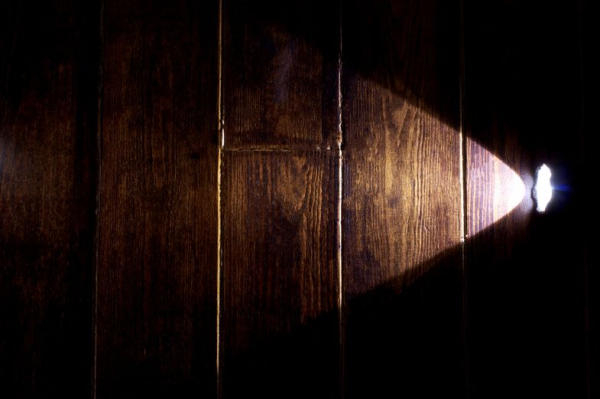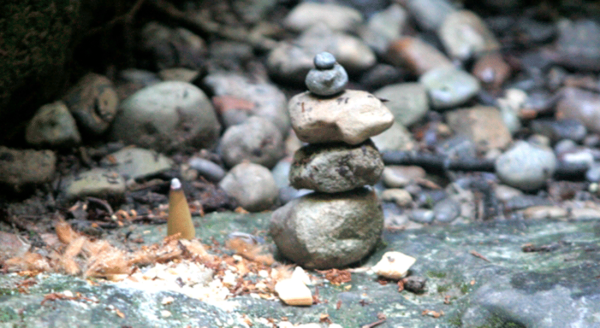|
If the newsletter does not display properly, please click here. |

|
|
|
|
|
Dear friends and colleagues, next week will be the last colloquium for this year. We thank you for the good collaboration and the fruitful discussions. Next year we will continue on 11 January with the first colloquium in 2023. This week we have recommendations for a lecture, a symposium, and two calls for papers for you. Additionally, we would like to inform you about the Nationwide Alert Day that will take place tomorrow. Enjoy and have a good week! Anja & Lucy |
|

|
|
Next week’s Colloquium: Uta Karstein on “Urban Space, Functional Differentiation, and Conditions of Religious Place-Making in 19th-Century German and British Cities”, 14 DecemberNext Wednesday, we will hold our last colloquium for this year: Our Senior Research Fellow Uta Karstein will give a presentation on the topic “Urban Space, Functional Differentiation, and Conditions of Religious Place-Making in 19th-Century German and British Cities”. Our director Monika Wohlrab-Sahr will comment on Uta’s presentation. The colloquium will take place in a hybrid format (on-site and online). If you would like to join in person, please register for the colloquium via e-mail. In the Member Area you will find the relevant readings as well as information on the zoom connection data.
Strohsack, Room 4.55 and online via zoom |
|

|
|
Lecture (in German) by Ringo Rösener: „Zur künstlerischen Fotografie während der HIV/AIDS Krise der 1980er und -90er Jahre“ (“On Artistic Photography during the HIV/AIDS Crisis of the 1980s and 90s”), 13 DecemberWe would like to point to the next lecture as part of the interdisciplinary colloquium series at the Institute for the Study of Culture at Leipzig University: Ringo Rösener, Postdoc Research Fellow at the Institute for the Study of Culture, will speak about „Zur künstlerischen Fotografie während der HIV/AIDS Krise der 1980er und -90er Jahre“ (“On Artistic Photography during the HIV/AIDS Crisis of the 1980s and 90s”). The event will be held in a hybrid format and you can join via zoom. You will find the zoom link in the accompanying MOODLE course. If you have any questions, please send an e-mail.
Leipzig University | Geisteswissenschaftliches Zentrum GWZ, H5 1.16 AND Online
|
|

|
|
Symposium: “Decolonizing Contemporary Women’s Spirituality, 8 DecemberScholarship on what is referred to as “contemporary women’s spirituality” mostly deals with new and alternative forms of spirituality in the West that emerged with the 1960s counterculture and, more recently, as part of the rise of subjective wellbeing culture. These forms of spirituality are a predominantly white phenomenon. Yet, they often rely on teachings and practices that originate from peoples of colour and that are eclectically mixed and interpreted in line with romanticized views of the primitive other. Therefore, they have been accused of cultural appropriation and of sustaining the colonial logics of white privilege and possessivism. A first aim of this symposium is to uncover these neo-colonial logics as they operate within contemporary women’s spirituality. The symposium is organized by the Centre for Research on Culture and Gender at Ghent University. If you wish to attend online, please register via e-mail.
Ghent University, Campus Boekentoren, Building Blandijn, Faculty Room, Blandijnberg 2, 9000 Gent AND Online
|
|

|
|
Call for Papers: 7th Junior Scholars Conference in Jewish History “Diaspora and Debris. Material Culture in German-Jewish History”, Washington D.C., 25–28 April 2023We would like to draw your attention to the seventh Junior Scholars Conference in Jewish History, co-organized by the German Historical Institute Washington DC, the Indiana University Bloomington, and the Moses Mendelssohn Center for European-Jewish Studies in Potsdam. Under the theme of “Diaspora and Debris: Material Culture in German-Jewish History”, the conference aims to bring together a small transatlantic group of junior scholars (postdoctoral scholars, recent PhDs as well as those in the final stages of their dissertations) to explore new research and questions in Jewish history. The focus will be on the exploration of the benefits (and challenges) of intertwining material culture and Jewish history as it relates to German-Jewish diasporas. Based on case studies that combine Jewish history with a material-culture approach in a very broad sense, the conference seeks to identify key approaches and topics of the field. Please send short proposals (750 words max.) and a one-page CV via e-mail.
Notification of acceptance: By 31 December Conference dates: 25–28 April 2023
|
|

|
|
Call for Papers: Conference on “Buddhist, Spiritual, Esoteric and Ecological Movements in the 21st Century: A Dynamic Legacy”, 22–23 May 2023The conference on “Buddhist, Spiritual, Esoteric and Ecological Movements in the 21st Century: A Dynamic Legacy” will take place in May 2023. It will explore the ways that Buddhist modernism and the spiritual movements of the fin de siècle (as exemplified by the Theosophical Society), both reacting to and enacting the dynamics of colonialism, continue to transform spiritual and ecological movements within and beyond the 21st century. The conference is co-organized by the Centre for Contemporary Buddhist Studies and the Copenhagen Centre for the Study of Theosophy and Esotericism.
Conference dates: 22–23 May 2023 Venue: University of Copenhagen, Department of Cross-Cultural and Regional Studies
|
|

|
|
2nd ”Nationwide Alert Day“ on 8 December, 11 amTomorrow, the Nationwide Alert Day will take place. This joint action day by the federal and state governments, serves to test all warning devices throughout Germany. Punctually at 11.00 am, warning devices such as sirens and loudspeaker cars as well as information via radio, television, websites and smartphones will be triggered simultaneously in districts and municipalities in all states with a test alarm and/or a warning text. In doing this, the technical procedures employed in case of an alert and the warning devices themselves will be checked for proper functioning and possible weak points. In addition, the Nationwide Alert Day aims to raise the awareness of this issue among the people in Germany. After the first nationwide alert day last year did not work as perfectly as hoped, we are curious to see what will happen tomorrow. Yet, please remember: this is just an (however important) exercise to warn of potential hazards such as dangerous weather conditions, power cut, fire or radiation. And usually warnings come with recommendations on what you can do to protect yourself or where you can get more information.
|
|
|
If you have any content that you think suits the purpose of the weekly, please feel free to send it to us at multiple-secularities@uni-leipzig.de. |
|
|
Kolleg-Forschungsgruppe "Multiple Secularities - Beyond the West, Beyond Modernities" Nikolaistraße 8-10, 04109 Leipzig Mail: multiple-secularities@uni-leipzig.de |